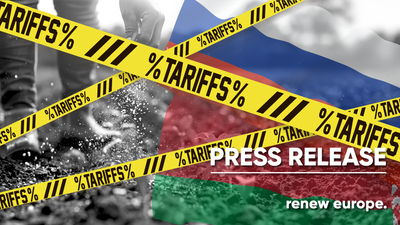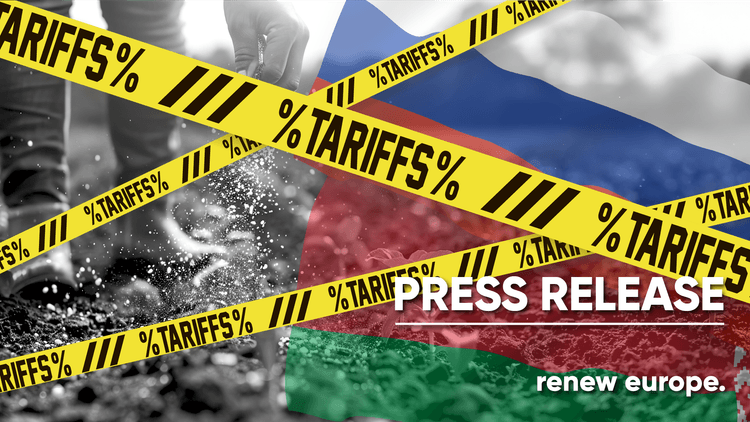
No More Russian Fertilizers: EU Imposes Tough New Customs Duties


Renew Europe strongly supports the European Commission's new proposal to increase customs duties on Russian and Belarusian agricultural products and fertilizers, a critical step toward reducing Europe's economic dependencies on Russia.
The proposal introduces a 15% customs duty increase on previously unsanctioned Russian agricultural imports and a 50% tariff on approximately 100 products by removing Russia's "most favoured nation" status. Additionally, it establishes a gradual increase in duties on fertilizers, which will take effect in the next 3 years for the European market to adapt without disruptions.
Ľubica Karvašová (Progresívne Slovensko, Slovakia), Renew shadow rapporteur on this file commented :
"Today, we take further steps to target the Russian war economy. Russia refuses to engage in ceasefire negotiations with Ukraine. Russia doesn’t want peace; on the contrary, it has deliberately weaponized our dependencies. Not anymore. As Europe moves decisively away from Russian fossil fuels, time has come to do the same with fertilizers, which are only gas imports in another form. This is also a matter of both European food and economic security. We are ready to work with the European Commission and Member States to jumpstart our own EU fertilisers industry, which was, for too long, undermined by the Russian artificially cheap imports."
The European Commission's proposal tackles Russia's flooding of the EU market with artificially cheap nitrogen-based fertilizers. These new customs duties will not only reduce Europe's dependency on Russian imports but will also provide crucial support to the struggling European fertilizer industry. By countering unfair competition from Russian producers, these measures will help revitalize domestic fertilizer production and strengthen Europe's agricultural self-sufficiency.
To protect European farmers from potential price spikes, the Commission has built safeguards into the regulation. The provisions requires comprehensive price monitoring of nitrogen-based fertilizers across the EU for four years, with monthly updates provided to Member States. Renew Europe strongly endorses these protective measures and remains particularly vigilant regarding the legitimate concerns of European farmers. The group has made addressing agricultural impacts a central priority in its support for the proposal.
The regulation includes an emergency mechanism allowing for the suspension of tariffs on fertilizers from countries other than Russia and Belarus if a significant price surge occurs.
Currently, the EU remains approximately 13% dependent on Russian fertilizers. Eight member states have already eliminated entirely Russian fertilizer imports.
"This isn't just about sanctions – it's about European security and self-reliance," emphasized Marie Pierre Vedrenne (Modem, France), Renew Europe's coordinator for the International Trade Committee (INTA). "Every euro spent on Russian fertilizers indirectly funds Russian's aggression against Ukraine. While we must reduce our dependence on Russia, we cannot do so at the expense of our farmers, we will closely monitor the implementation of these safeguards to ensure our agricultural sector remains competitive and resilient."
